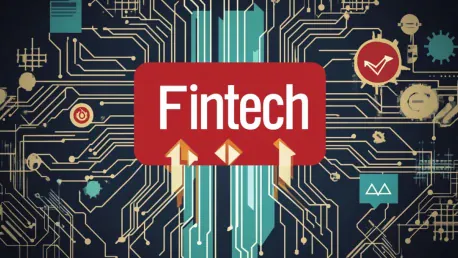Listen to the Article
It’s 2025, and B2B payment systems are undergoing a deep restructuring through financial technology. The traditional global payment landscape—once dependent on paper checks, wire transfers, and time-consuming and error-prone manual processes—is now evolving into an efficient ecosystem.
How is fintech reshaping the future of business transactions? These modern solutions enable instant global transfers, fraud detection, and significant cost reductions in B2B payments.
Read on to examine how these fintech innovations are transforming B2B payment systems and what they mean for your business.
The Challenges of Traditional Payment Systems
For years, the process of making global business payments has been inundated with bottlenecks. Slow processing times, expensive fees, and lack of transparency have long frustrated businesses that operate internationally.
According to a report by Macrotrends, global payments revenue for the last twelve months was $10.024 billion, a 5.81% increase year over year, yet inefficiencies in cross-border transactions continue to cost businesses billions.
The SWIFT system, for instance, is a payment network that facilitates electronic and card transactions across different banks and has long served as a cornerstone of international payments. While it is reliable, it is far from agile. Payments are infamous for long wait times, taking up to a few business days to process, with intermediaries deducting fees at multiple stages.
This is simply unacceptable for modern businesses that rely on real-time data and instant transactions for success. That’s where fintech comes in.
What is Fintech?
With the evolution of the electronic age, the development of payment technologies evolved and improved considerably. In the 1960s, the first electronic funds transfer system was established, which later developed into the payment processing solutions used widely today. The biggest changes were introduced in real-time transaction processing. This was a much better way of encrypting data, along with end-to-end automation of reconciliation—capabilities that were unavailable just a few years ago.
Financial technology, often referred to as fintech, plays a major role in the industry’s transformation. It seeks to improve and automate the delivery and use of financial services.
At its core, fintech helps companies, business owners, and consumers better manage their financial operations and systems. It comprises mainly specialized software, algorithms, and technologies like blockchain, AI, and machine learning that can easily be applied to computers and smartphones.
The Benefits of Adopting Fintech for Global Payments
Security and Fraud Detection
The collaboration between banks and fintech firms like Payoneer and TransferWise (which has now been rebranded to “Wise”) has created hybrid solutions that combine the security of traditional banking with the innovations of modern technology.
Because these platforms are AI-embedded out of the box, they play a role in fraud detection. Machine learning algorithms continuously monitor transaction patterns to detect and prevent fraudulent activities in real time.
These systems can identify unusual transaction patterns, flag suspicious payment behaviors, monitor transaction volumes against historical data, instantly detect potential security breaches, and implement automatic transaction blocking when necessary.
Cost Savings
In general, traditional banking systems typically involve many (often hidden) service fees, such as transaction fees, currency conversion costs, and charges from intermediaries. Fintech solutions operate in these cost-generating layers, helping businesses reduce expenses. For instance, Wise is reported to save its customers £150 billion in fees yearly by eliminating hidden costs.
Time optimization
Fintech solutions offer speed and efficiency. The latest fintech services enable the transfer of foreign currency with almost no time delay. These new systems function around the clock without the general waiting period of 3–5 business days. This means that businesses can make cross-border payments with ease, just like their domestic counterparts, and simplify cash flow management.
Complete Visibility
One of the most notable features of the services provided by fintech that support cross-border payment is transaction transparency, which allows all parties to track payments from the beginning to the end. Businesses can track payments in real time, see how much they will receive upfront, and access details about previous transactions. Such clear visibility into transactions will help the business plan its finances and better prepare for any payment-related queries.
To reap these benefits, you need a reliable fintech partner.
Selecting the Right Fintech Partners
Yes, fintech payment platforms are now the way of the future. But with so many on the market, which can best suit your business needs?
First, select a financial technology company that meets your company’s growth needs and objectives. Be sure to look for vendors with a strong reputation, good security, and the ability to provide full support services. Be sure that your selected platform can successfully integrate with your existing systems and can grow with your company.
Secondly, to implement your chosen solution, you’ll need to initiate a pilot program in a controlled environment so that there is minimal disruption. You can do so by introducing the new payment solution in a few departments or for only a few transaction types This step will help you identify and fix issues before committing to the complete implementation. Invest in comprehensive training programs to ensure your team understands the new payment systems. To make this easier, you can create detailed documentation and provide ongoing support to help employees adapt to the changes.
Lastly, establish key performance indicators to track the success of your fintech implementation. These will also help you monitor metrics like processing times, error rates, and cost savings. You can use this data to make informed decisions about system adjustments and further improvements.
To Сonclude
Financial technology is clearly set to continue bettering how your organization facilitates global transactions in 2025 and beyond.
Embracing this technology’s offerings means that your businesses can expect faster transactions, reduced costs, and enhanced security measures. Shift from old payment rails to digital platforms. Such a move will not only improve operational efficiency but also provide your business with greater transparency and control.
Whether you’re dealing with cross-border transactions or looking to better your working capital, fintech solutions offer the tools needed for success in today’s digital economy.









